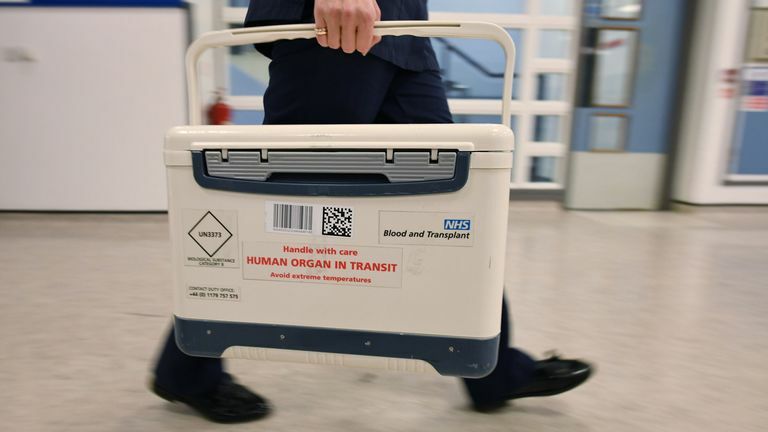Blood test for zombie cells may boost heart transplant availability

A groundbreaking blood test capable of identifying “zombie cells” may significantly increase the number of hearts available for transplant, according to new research. At present, donor hearts from individuals over 65 years old are typically not used due to concerns about potential negative outcomes. However, experts argue that age alone does not necessarily determine heart health, as hearts age at different rates. Researchers at Newcastle University are developing a test that could help doctors quickly assess the viability of a donor heart for transplantation. Currently, approximately 320 people in the UK are waiting for a vital heart transplant.
The innovative test could potentially expand the pool of available organs, offering hope to more patients in need of transplants. The research, which was partially funded by the British Heart Foundation, was presented at the British Cardiovascular Society conference in Manchester. The study found that individuals with heart disease have a higher number of senescent cells, or “zombie” cells, than those without the condition. Elevated levels of “zombie” cell markers were detected in their blood samples.
Although “zombie” cells are not dead, they do not function properly. They produce molecules that can affect and convert surrounding cells into “zombie” cells as well, potentially promoting inflammation and leading to the formation of scar tissue in the heart. This increases the risk of developing cardiovascular diseases.
In order to examine the physiological rather than chronological age of the heart, researchers plan to investigate the blood signature left by these “zombie” cells further. Dr Gavin Richardson, senior lecturer and head of the vascular medicine and biology theme at Newcastle University, explained that researchers are exploring the possibility of using a blood test to identify older potential donors with biologically young, healthy hearts suitable for transplantation.
He said: “Our work is revealing more about the clues that ‘zombie’ cells leave to suggest their presence in the body. We are confident that we will be able to use these clues to better understand which hearts from non-eligible donors might be able to be used after all. This could be a game changer as currently most hearts from older donors are not used for transplant, but the hope is we will be able to show that a number of these organs are suitable for transplant for people desperately waiting for a new heart.”
The research found that “zombie” heart cells secrete higher levels of a protein called GDF15 compared to healthy cells. By examining blood samples from over 774 individuals aged over 85, the study discovered higher levels of this protein in the blood of people with heart disease compared to those without, suggesting their hearts contain more “zombie” cells.
Professor James Leiper, associate medical director at the British Heart Foundation, said: “We are facing a heart failure epidemic with nearly one million people in the UK living with this condition and for a small but significant number of these people the only cure we can offer is a heart transplant. We urgently need more hearts available for transplant, so it is very encouraging to hear about the work Dr Richardson and his colleagues are doing to help meet this demand.”
Latest Thailand News
Follow The Thaiger on Google News:
































